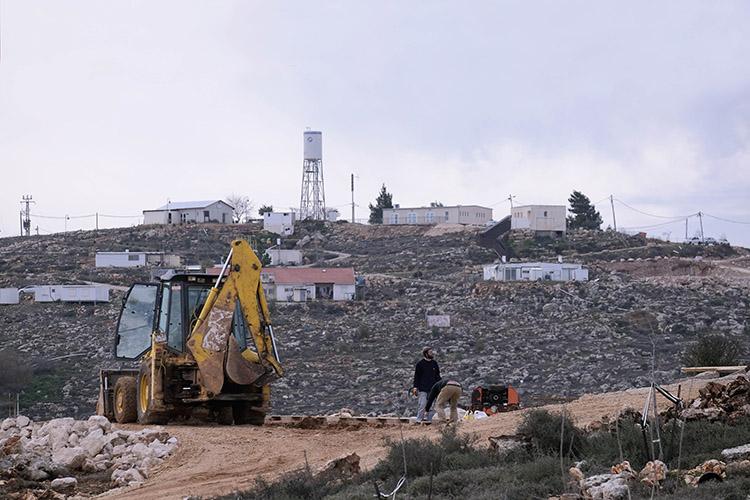Land Takeover Practices Employed by Israel in the West Bank: Report -Sept 2016
 Monday, October 24, 2016 at 12:08PM
Monday, October 24, 2016 at 12:08PM Report by Yesh Din 29 September 2016

llustration photo by Eddie Gerald/ Getty Images
The position paper titled “Land Takeover Practices Employed by Israel in the West Bank”, published by Yesh Din, reviews and analyzes some of the methods used by various official Israeli bodies to take over land in the West Bank, as well as the results of legal proceedings undertaken by Palestinian residents, with Yesh Din’s help, in order to fight the land grab.
A survey of the proceedings in which Yesh Din represented Palestinian residents of the West Bank before the courts and various Civil Administration committees provides an overall picture of the practices and maneuvers the Israeli authorities use in order to increase the reservoir of land meant to serve Israeli interests in the West Bank.
International law prohibits the exploitation of the occupied territory to serve the needs of the occupier. Therefore, increasing the amount of land Israel builds on requires either legal acrobatics designed to create the appearance of the rule of law, or brazen defiance of the law while law enforcement authorities turn a blind eye.
The legal proceedings led by Yesh Din, and others, have challenged the state, especially with respect to unauthorized outposts in the OPT. These proceedings have forced Israel to expose its policy regarding the issue. One example is that after many years of claiming that any illegal construction must be removed, regardless of the status of the land, more recently, Israel’s official position has been that illegal construction on privately owned Palestinian land must be removed, but, any illegal construction on public land would be retroactively authorized.
As a result of the new position presented by the state, illegal construction on privately owned Palestinian land has stopped almost completely. However, there is a trend of declaring land in the West Bank as public land, or as it is commonly referred to, state land. Though public land is meant to serve the needs of the local population of the occupied territory – in practice, the Civil Administration allocates public land almost exclusively for the use of the settlements.
In order to implement this new policy, all state authorities and Civil Administration bodies have been mobilized to favor offenders and find administrative and procedural solutions that would allow to retroactively authorize structures or communities, instead of fulfilling their duty to enforce the law and protect the property of the local population in the occupied territory, as required under international law and according to the rulings of Israel’s High Court of Justice.
 APJP |
APJP |  Post a Comment |
Post a Comment |